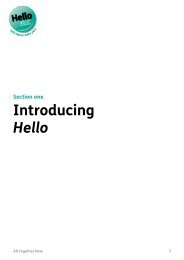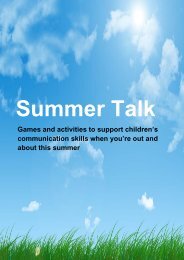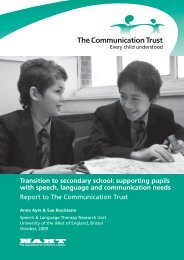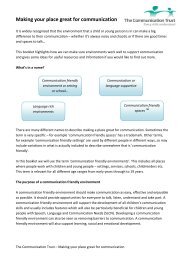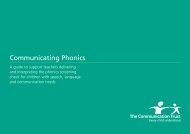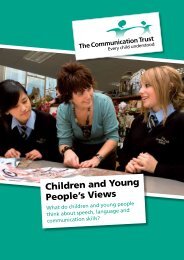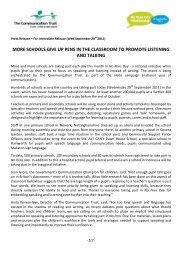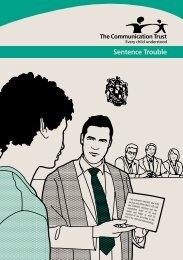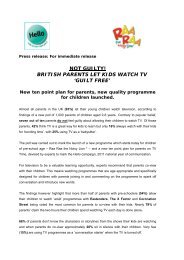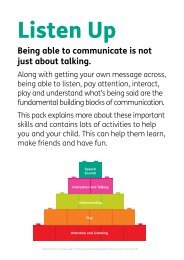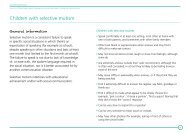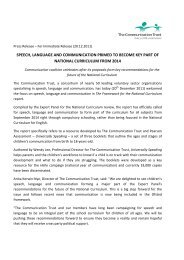Don't Get Me Wrong - The Communication Trust
Don't Get Me Wrong - The Communication Trust
Don't Get Me Wrong - The Communication Trust
You also want an ePaper? Increase the reach of your titles
YUMPU automatically turns print PDFs into web optimized ePapers that Google loves.
Or no diagnosis<br />
Many children with SLCN, including those who have difficulties like the ones<br />
described above, do not have a diagnosis, SEN categorisation or label.<br />
<strong>The</strong> most likely consequences for SLCN are literacy difficulties, which has clear<br />
implications for education. SLCN also has a huge impact on interactions and so<br />
children and young people miss opportunities to develop their language skills<br />
further.<br />
<strong>The</strong>re is a strong association between SLCN, behavioural, emotional and social<br />
difficulties (BESD) and later mental health issues. It is often the impact of the SLCN<br />
that is seen – poor literacy, behaviour problems, withdrawal from activities – rather<br />
than the underlying needs, which can remain ‘hidden’.<br />
It is also true to say that not all of the negative consequences of SLCN will apply to<br />
every child or young person.<br />
Reading Don’t <strong>Get</strong> <strong>Me</strong> <strong>Wrong</strong> may support development of the following<br />
competences of the speech, language and communication framework (SLCF):<br />
Section1: Universal B2; Universal B7<br />
Enhanced B1, B2 and B3. <strong>The</strong>se are reinforced in Section 2<br />
Section 3: Enhanced C2; C3; C13<br />
Enhanced G4<br />
Don’t <strong>Get</strong> <strong>Me</strong> <strong>Wrong</strong> 31



